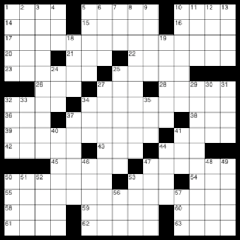Search results
Results From The WOW.Com Content Network
In general, just the noun or pronoun, but not any accompanying adjectives, take case endings. However, sometimes, a case ending on a group consisting of a noun followed by an adjective attribute may be put on the adjective instead of on the noun, as in Elendil vorondo voronwe , "Elendil the faithful's fidelity"; compare this with the noun ...
Like the "singular you", "singular they" permits a singular antecedent, but is used with the same verb forms as plural they, and has the same inflected forms as plural they (i.e. them, their, and theirs), except that in the reflexive form, themself is sometimes used instead of themselves.
Linguists generally accept nine English word classes: nouns, verbs, adjectives, adverbs, pronouns, prepositions, conjunctions, determiners, and exclamations. English words are not generally marked for word class.
The royal we, majestic plural ( pluralis majestatis ), or royal plural is the use of a plural pronoun (or corresponding plural-inflected verb forms) used by a single person who is a monarch or holds a high office to refer to themselves. A more general term for the use of a we, us, or our to refer to oneself is nosism .
A grammatical case is a category of nouns and noun modifiers ( determiners, adjectives, participles, and numerals) that corresponds to one or more potential grammatical functions for a nominal group in a wording. [1] In various languages, nominal groups consisting of a noun and its modifiers belong to one of a few such categories.
It is a meaning relation in which a phrase "stands in" for (expresses the same content as) another where the meaning is recoverable from the context. [2] In English, pronouns mostly function as pro-forms, but there are pronouns that are not pro-forms and pro-forms that are not pronouns.
A reciprocal pronoun is a pronoun that indicates a reciprocal relationship. A reciprocal pronoun can be used for one of the participants of a reciprocal construction , i.e. a clause in which two participants are in a mutual relationship.
As a general rule, the subjective form is used when the pronoun is the subject of a verb, as in he kicked the ball, whereas the objective form is used as the direct or indirect object of a verb, or the object (complement) of a preposition.
An example is the phrase to up the ante, which incorporates the preposition up (a function word) in a verb (a content word) but without up becoming a verb outside of this lexical item.
A syntactic category is a syntactic unit that theories of syntax assume. [1] Word classes, largely corresponding to traditional parts of speech (e.g. noun, verb, preposition, etc.), are syntactic categories.








